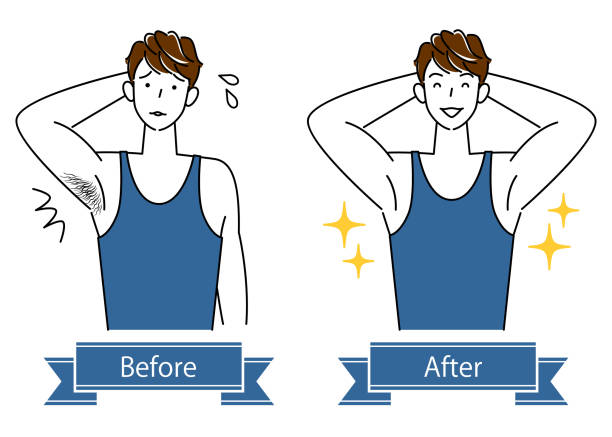Chest acne, though not uncommon, can be a source of discomfort and self-consciousness. Whether it’s due to sweat, friction, or other factors, battling chest acne requires a combination of proper skin care, lifestyle adjustments, and consistent habits. In this guide, we explore practical strategies to help you get rid of chest acne and achieve clearer, healthier skin.
Understanding Chest Acne
1.1 What Causes Chest Acne?
Various factors, including excessive oil production, dead skin cells, bacteria, and inflammation, can cause chest acne. Hormonal changes, tight clothing, and sweating can exacerbate the condition.
1.2 Types of Chest Acne
Chest acne can manifest in various forms, such as blackheads, whiteheads, papules, pustules, or cysts. Identifying the specific type of acne can guide the choice of appropriate treatments.
Skincare Routine for Chest Acne
2.1 Gentle Cleansing
Use a mild, fragrance-free cleanser to wash your chest daily. Avoid harsh scrubbing, as it can irritate the skin and worsen acne. Pat your skin dry with a clean towel.
2.2 Exfoliation
Incorporate a gentle exfoliant containing salicylic acid or glycolic acid into your routine. Exfoliating helps remove dead skin cells and unclog pores, preventing acne formation.
2.3 Non-Comedogenic Moisturizer
Apply a non-comedogenic moisturizer to keep the skin hydrated without clogging pores. Dry skin can trigger increased oil production, contributing to acne.
2.4 Acne-Fighting Topicals
Consider using over-the-counter acne-fighting topicals containing benzoyl peroxide or salicylic acid. Apply these products as directed to target existing acne and prevent new breakouts.
Lifestyle Adjustments
3.1 Wear Breathable Fabrics
Choose loose-fitting, breathable fabrics like cotton to minimize friction and allow the skin to breathe. Avoid tight clothing that can trap sweat and contribute to acne.
3.2 Shower After Sweating
If you engage in physical activities that make you sweat, shower promptly afterward. Sweating can mix with oils and dead skin cells, creating an environment conducive to acne.
3.3 Launder Bedding Regularly
Frequently wash your sheets, pillowcases, and any clothing that comes into contact with your chest. Clean bedding helps prevent the accumulation of acne-causing bacteria.
3.4 Avoid Touching or Picking
Resist the urge to touch, pick, or squeeze chest acne. Doing so can introduce bacteria, increase inflammation, and lead to scarring.
Dietary Considerations
4.1 Stay Hydrated
Proper hydration supports overall skin health. Drink an adequate amount of water daily to help flush out toxins and maintain skin elasticity.
4.2 Limit Dairy and High-Glycemic Foods
Some studies suggest a link between dairy consumption and acne. Additionally, reducing the intake of high-glycemic foods like sugary snacks and refined carbohydrates may benefit skin health.
4.3 Consume Antioxidant-Rich Foods
Incorporate antioxidant-rich foods like fruits, vegetables, and nuts into your diet. Antioxidants help combat inflammation and promote skin healing.
Professional Treatment Options
5.1 Dermatologist Consultation
If chest acne persists or is severe, consult a dermatologist for personalized guidance. They can assess your skin condition and recommend appropriate prescription medications or procedures.
5.2 Chemical Peels
Chemical peels administered by dermatologists can help exfoliate the skin and reduce acne. This involves applying a chemical solution to remove the top layer of skin.
5.3 Laser Therapy
Laser therapy targets acne-causing bacteria and reduces inflammation. Dermatologists can recommend specific laser treatments based on the type and severity of chest acne.
Conclusion
In conclusion, addressing chest acne involves a holistic approach, combining proper skincare, lifestyle adjustments, and dietary considerations. Consistency is key, and patience is essential, as results may take time. If chest acne persists or worsens, seeking professional guidance ensures a tailored and effective treatment plan.
6.1 How Long Does It Take to See Improvement in Chest Acne?
The timeframe for improvement varies among individuals. With a consistent skincare routine and lifestyle adjustments, some may notice positive changes in a few weeks, while others may take longer. Patience and consistency are crucial.
6.2 Can Chest Acne be a Sign of an Underlying Health Issue?
In some cases, persistent acne may be related to hormonal imbalances or underlying health issues. If chest acne persists despite home remedies, seeking advice from a healthcare professional or dermatologist is advisable.
6.3 Is Sun Exposure Good for Chest Acne?
While sun exposure can temporarily improve acne due to its drying effect, excessive sun exposure can lead to skin damage and worsen acne in the long run. Use sunscreen and limit sun exposure.
6.4 Can Chest Acne Be Treated with Natural Remedies?
Natural remedies like tea tree oil or aloe vera may offer some relief for chest acne. However, it’s essential to patch-test and consult with a dermatologist to ensure these remedies are safe and effective for your skin type.
6.5 Are Acne-Prone Skin and Chest Acne Genetic?
Genetics can play a role in acne susceptibility. If you have a family history of acne, you may be more prone to developing chest acne. However, lifestyle factors and skincare habits also significantly influence acne development.

